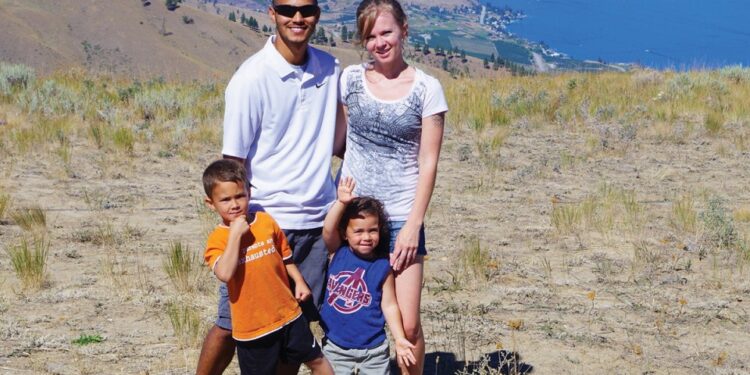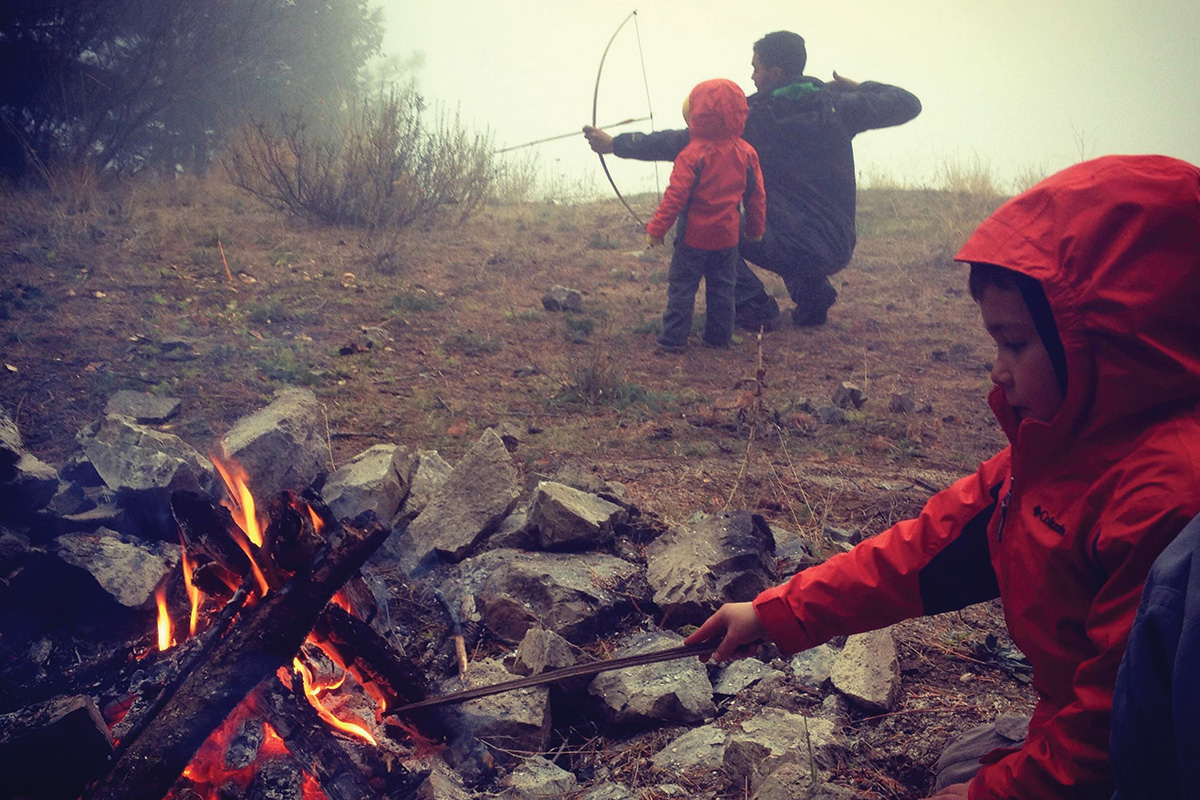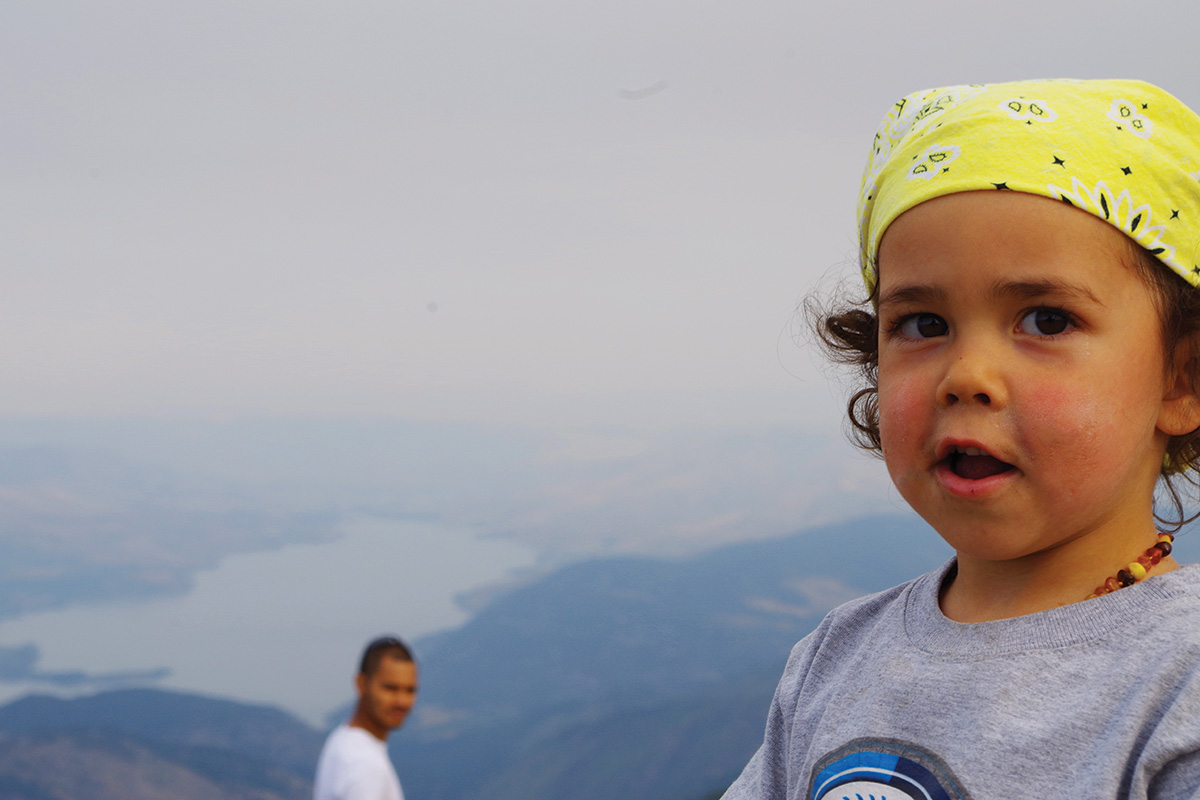When David and Amber Linthakhan decided they were ready to start a family, David says he “started to look for something that could be a career in Omaha to make a bunch of money and have a big house and all that kind of stuff.”
First selling cars, then working in insurance, David worked long hours and missed time with Amber and his two sons.
“When he was in the car business, he would work 12- to 13-hour days,” Amber says. “He’d be gone when the boys woke up, and, two days a week, the boys would be asleep before he got home. So he missed out on days.”
In insurance, the long hours included always being on call.
“I was finding myself miserable,” David says.
He started to wonder about bigger possibilities for his family.
“One weekend we were out camping, and we really loved camping,” David says. “I had been, I guess, soul-searching without really talking to Amber. And I asked her what she thought if we moved away and did something else.”
Amber says, “I’d been begging him to leave and move. I’d been having itchy feet to travel for a long time, so I was all for it. I said, ‘Absolutely. When do we leave? What are we going to do?’”
Recalling his childhood dream of being a park ranger, David started looking into park ranger schools. “Being a ranger always had that appeal to me,” he says. “You stood for something. You were protecting something that we could destroy and never get back, and I wanted to be part of that.”
From a list of just seven academies, Parks Law Enforcement Academy in Mount Vernon, Wash., drew them in.
Though both were born and raised in the Midwest, David and Amber had always loved the Pacific Northwest. They were particularly attracted to Washington for its variety of landscapes and climates: trees, mountains, ocean and fresh water, deserts, and rainforests.
In January 2013, David began school. A few months later, Amber and the boys joined him, bringing only what they could fit in their pickup truck.
This was a leap of faith. “There wasn’t a guarantee of a job afterward,” Amber says.
“It’s a really competitive industry,” David explains. “So many people in the states have the same dream, want to be part of conserving and preserving. You’ve really got to stand out amongst so many people who are fighting for that same job.”
About three months into academy, Washington State Parks started recruiting from within the program. David was grateful and relieved to be one of approximately five cadets recruited.
Now the family lives in Lake Chelan State Park, Wash.
“This park sits on a huge lake that’s 52 miles long and 1,500 feet deep at its deepest point, which puts it below sea level,” David says. “The water is crystal clear, so you can see down 20 feet.”
David spends much of his on-season time educating visitors on the park features.
“Sometimes I have to go into law enforcement mode and do things that a police officer would do,” David says. “But our park here is a little slower paced as far as that goes. A lot of families. So there’s not a whole lot of trouble, which makes it a really nice place to raise our kids.”
Jace, 5, and Kasen, 3 and a half, are very adventurous. They like to go on hikes, play with bugs, and play superheroes—in fact, Kasen will only respond to the name “Superman,” and even corrects Amber when she talks about him.
Amber stays home with the boys. In addition to enjoying the kids, she also gardens, repurposes furniture, does crafts, bakes, cooks, and “dinks around in a lot of different things.”
She writes and keeps up their blog: simplythewildside.com. This has been one major way they can keep their family, all of whom live in the Midwest, updated. “It’s really tough being far away from family and friends,” she says. “But it’s a great time to fall into ourselves, learn more about us, and develop in that way. We are, basically, all alone out here. We lean on each other a lot and are growing a lot as a little family, for sure.”
“I felt like my duty as a husband and father was to make a bunch of money and provide for my family. To make sure we had everything we felt would make us happy. TVs, going out to eat all the time,” David says. “I don’t make near as much money as I used to, but we have a better life, I feel.”
It’s a simple life. Their belongings still pretty much all fit into that pickup truck. They do have a TV for hooking up movies, but they rarely use it.
“It just feels more free,” David says.
“We’re not tied down to a schedule either,” Amber says. “We wake up, and if we just want to hang out all day, that’s what we do. There’s no time pressure.”
Time is exactly the thing David was missing out on before. “Living in the park, I have so much more time to spend with my kids and my wife,” he says. “I don’t have to commute, for one. I walk out, and I’m on the clock.”
His 15-minute breaks and his hour-long lunch breaks are spent at home. “It’s surprising how much time you get to spend with them just in those little bits,” he says.
They can’t imagine going back to a “regular life, back to the busy,” according to Amber. If state and federal funding allows it, David hopes to be a park ranger until he retires.
As for Washington, Amber says, “We’re not opposed to going somewhere else. But we do love it here.”















